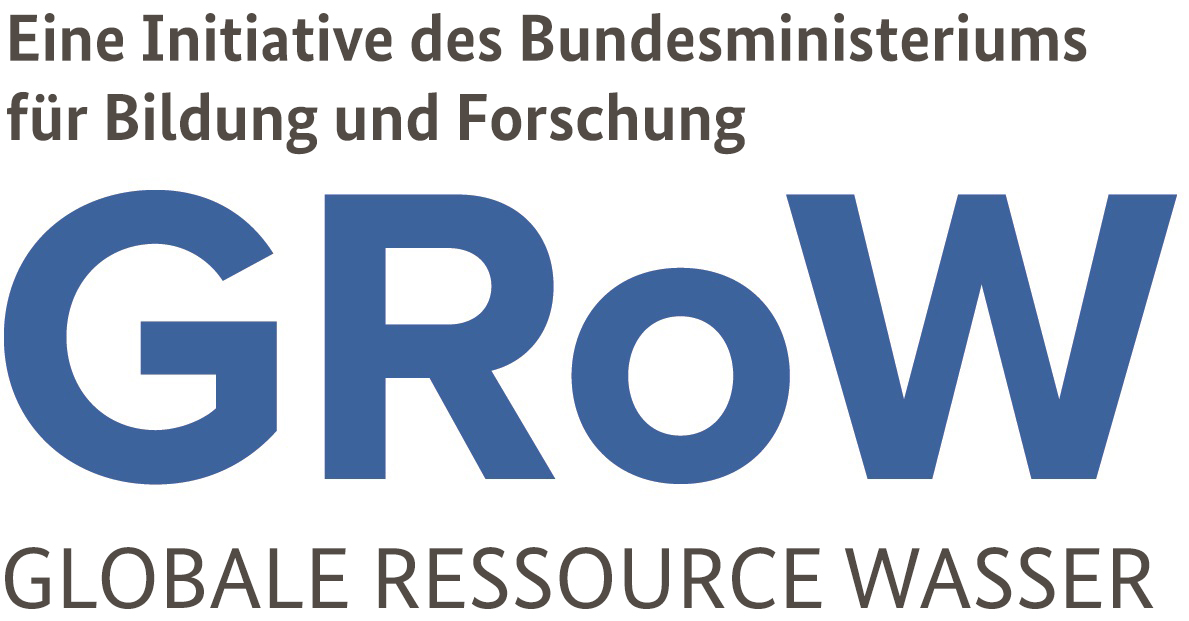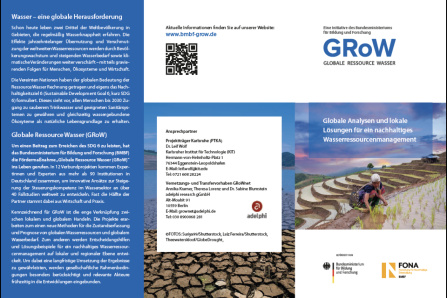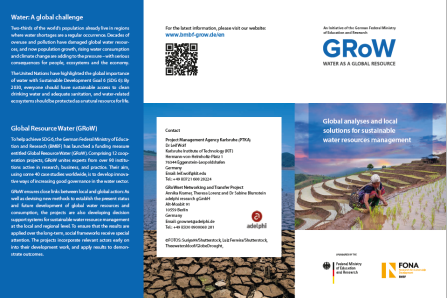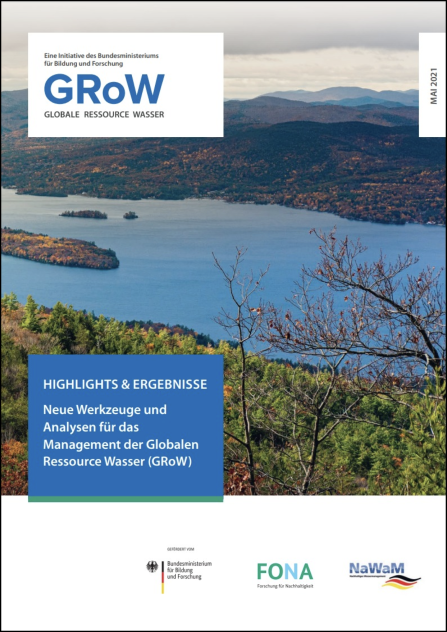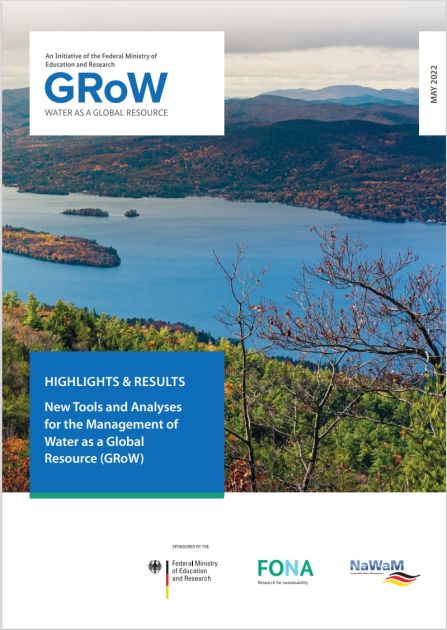The GRoW funding measure
In 2016, leading representatives of the economy classified uncertainties in the water sector as the biggest global risk of the next ten years. Two thirds of the world’s population already live in regions where they face water shortages for at least one month per year. The situation exists because natural stocks of clean water are being depleted faster than they can be replenished. This overuse of global water resources leads to conflicts that can only be solved by using water efficiently and thereby improving the living conditions in the affected regions.
The United Nations’ 2030 Agenda for Sustainable Development recognises the global importance of water resources. Sustainable Development Goal 6 (SDG 6) specifically aims to “ensure availability and sustainable management of water and sanitation for all.” By 2030, everyone should therefore have access to clean drinking water and adequate sanitation systems, and water-related ecosystems should be protected or restored as natural resources.
With its Water as a Global Resource (GRoW) funding measure, which is part of the „Research for Sustainable Development (FONA)“ framework, the German Federal Ministry of Education and Research (BMBF) is helping to achieve SDG 6. Over 90 institutions active in research, business and practice are involved in the measure through various joint research projects, and are developing new approaches for increasing good governance in the water sector.
A defining feature of the funding measure is that it links local and global action. In this era of global economic exchange, the needs of people in one place exist alongside those of people on the other side of the world. The trade in virtual water means that local and regional water resources and systems are now globally connected. With this in mind, the joint research projects examine local and regional solutions as well as producing improved global information and forecasts about water resources and demand.
The Water as a Global Resource (GRoW) funding measure is part of the Sustainable Water Management (NaWaM) funding priority within the Research for Sustainable Development (FONA) framework of the German Federal Ministry of Education and Research (BMBF).
 adelphi.de
adelphi.de
 kit.edu
kit.edu
